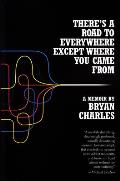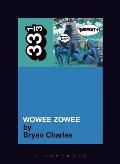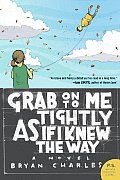
Three weeks before
There's a Road to Everywhere Except Where You Came From was published, I started a temp job at an "experiential marketing" agency in Midtown. I was hired as a copy editor, though actually there wasn't much copy involved. Instead, my job was to proofread the pages of a large binder used by a wireless-communications carrier at its call centers nationwide. The binder contained information on products and offer bundles and methods of selling and was updated several times a year. I was told in the interview that the pace would be hectic — how did that sound? Could I do a high volume of work on tight deadlines, maybe work the odd late night or two? I considered my checking account — under a hundred dollars. Oh yes, I said, I can do that.
It was funny, in a way — not ha-ha funny, the other kind. There's a Road chronicles my decision, in the horror-stricken aftermath of 9/11, to quit my day job as a financial writer and focus solely on writing my first novel. Since then (January, 2002) — with two yearlong exceptions — I've lived in a state of constant, crushing financial desperation, heightened at times by massive guilt. I swore when I left my cubicle (or rather, the place they sent me after my cubicle was destroyed) that I would never go back to one, never work in an office again, that I would find a way to make it as a writer somehow. And for a brief, unreal period it seemed feasible. I had just started grad school at Brooklyn College, and rather than pay the relatively cheap tuition along the way, I maxed out my student loans, adding to a pile of undergraduate debt. I currently owe the federal government thirty-seven grand and counting. If that seems manageable to you, consider that I've been paying on a $1,100 credit card bill for two years.
In Michiko Kakutani's recent review of Saul Bellow: Letters, she writes that "he 'learned to organize' his daily life for the 'single purpose' of writing." I have no affinity for Bellow's work, but for nine years I emulated this sense of purpose, with occasionally embarrassing or shameful consequences. Several times during the writing of Grab on to Me Tightly as If I Knew the Way, I ran my bank account — never robust — down to nothing, then asked my parents, who could scarcely afford it, for help. These requests were pitched as "loans," but as with my student loans I'm still — still! — in no position to begin paying them back. More recently, my girlfriend supported me while I worked on There's a Road and Wowee Zowee, my book about the band Pavement, published earlier this year. Now and then I would take a day off to look for jobs, a process I viewed as mildly irritating at best and at worst as an indicator that my life was over.
 That sounds dramatic, sure. But consider the two yearlong periods of solvency mentioned above. Both involved capitulating to full-time office jobs at financial companies. During those years — 2005 and 2007 — I struggled to maintain a writing schedule before giving up entirely and falling into black depressions. I was reminded of my pre-9/11 life, wasting days, weeks, months in a cubicle, waiting for some elusive time in the future when I would really, finally, get down to business and write. The 2007 stint was made worse by the fact that I'd already published a novel. And for an artist with an ego and some level of achievement, there is nothing more dire than immersion in a world where not only are you kept from pursuing your vocation, but — aside from a few names high on the bestseller lists — your vocation may as well not exist at all.
That sounds dramatic, sure. But consider the two yearlong periods of solvency mentioned above. Both involved capitulating to full-time office jobs at financial companies. During those years — 2005 and 2007 — I struggled to maintain a writing schedule before giving up entirely and falling into black depressions. I was reminded of my pre-9/11 life, wasting days, weeks, months in a cubicle, waiting for some elusive time in the future when I would really, finally, get down to business and write. The 2007 stint was made worse by the fact that I'd already published a novel. And for an artist with an ego and some level of achievement, there is nothing more dire than immersion in a world where not only are you kept from pursuing your vocation, but — aside from a few names high on the bestseller lists — your vocation may as well not exist at all.
Which brings me to my temp job at the marketing agency. As often happens when a blizzard of work is prophesied, I was given little to do. I sat in my cubicle, numb with boredom, waiting for work that rarely arrived and could be dispatched within minutes when it did. All around me people stared at screens, aiding the wireless company in its quest to upsell customers on Internet and TV bundles, generating another $20 to add to its billions. ("Keep customers on the line." "Have a good answer to every objection." "Close the sale.") In idle moments they discussed lunch possibilities, gentrification, Dancing with the Stars.
A few days before There's a Road came out I was eating lunch alone in a café area that doubled as a ping-pong room. A woman came in to make some tea. A week earlier she'd brought me a holiday kit to proofread, in which it was suggested that seasonal — indeed, familial — happiness could be achieved through the pausing of live television in one room and the resumption of viewing the same program in another.
"I heard through the grapevine that you're a publisher," she said.
 "A publisher?"
"A publisher?"
"Yeah, didn't you self-publish some books?"
"No. I mean I have a few books out, but I didn't publish them. Other people — the publishers published them."
"That's cool," she said. "You should bring in a bunch and give them out to the team."
"Well. Maybe the team could buy them."
"Yeah. You should send an e-mail around to the team."
"I don't think I know the team well enough for that."
"Well, then just to our group."
"I don't think I know our group well enough either."
Five minutes later I was at my desk, cutting and pasting links to information about my books into an email addressed to this woman, with whom I'd previously exchanged maybe a dozen words. I knew I was overdoing it. I didn't care. I wanted her to see that I was more than just another temp with a dream. And I was trying in no small measure to convince myself of that, too.